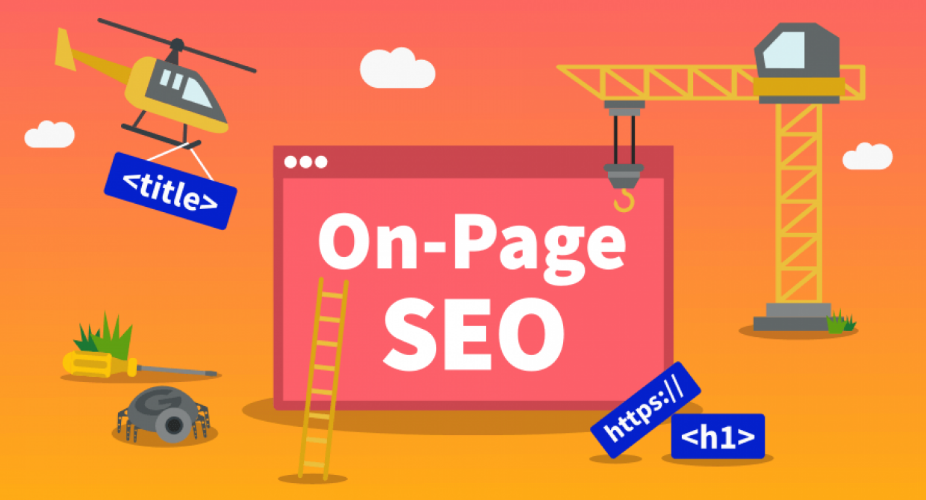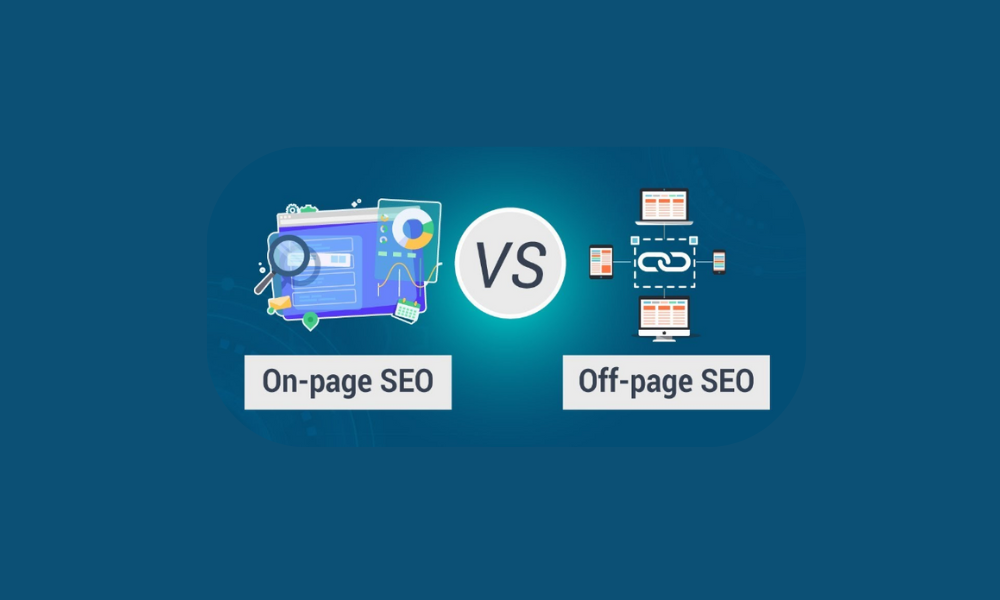In the digital landscape, Search Engine Optimization (SEO) plays a pivotal role in determining a website’s visibility and ranking on search engine results pages (SERPs). Two fundamental pillars of SEO are On-Page SEO and Off-Page SEO, each contributing uniquely to enhance a website’s search ranking.

Table of contents
On-Page vs Off Page SEO
SEO encompasses a set of strategies and techniques aimed at improving a website’s organic search visibility. This involves optimizing various elements both within and outside the website to align with search engine algorithms and user intent.
On-Page SEO
On-page SEO refers to optimizations made directly on the website itself. This includes elements such as meta tags, keyword optimization, quality content creation, and user experience improvements. These strategies are vital for communicating the relevance and value of a webpage to search engines.

Definition and Components
Meta tags, including meta titles and descriptions, provide concise information about the content of a webpage to search engines and users. Keyword optimization involves strategically incorporating relevant keywords throughout the content to improve visibility for specific search queries. Content optimization focuses on creating high-quality, relevant, and engaging content that satisfies user intent.
Importance for Search Engine Ranking
Effective On-Page optimization enhances a website’s relevance and authority for targeted keywords, leading to improved search engine ranking. It ensures that search engines understand the purpose and context of each webpage, making it more likely to appear in relevant search results.
Best Practices and Techniques
Best practices for On-Page optimization include optimizing meta tags with relevant keywords, creating unique and valuable content, improving page load speed and mobile responsiveness, optimizing images and multimedia elements, and ensuring a clear site structure and navigation.
| Best Practices for On-Page SEO | Explanation |
| 1. Optimize Meta Tags | Use relevant keywords in meta titles and descriptions to improve search engine visibility. |
| 2. Create Unique Content | Produce valuable, original content that addresses users’ needs and interests, enhancing engagement and search rankings. |
| 3. Improve Page Load Speed | Optimize website performance by reducing code bloat, optimizing images, and leveraging caching techniques. |
| 4. Enhance Mobile Responsiveness | Ensure your website is mobile-friendly, providing a seamless user experience across devices and improving search rankings. |
| 5. Optimize Images and Multimedia | Use descriptive alt tags for images, compress files to reduce load times, and optimize video content for search visibility. |
| 6. Ensure Clear Site Structure and Navigation | Organize content logically, use a clear hierarchy, and implement intuitive navigation to enhance user experience and search engine crawlability. |
Off-Page SEO
Off-page SEO refers to external factors that influence a website’s search ranking. This primarily involves building authority, trust, and relevance through backlinks, social signals, and overall online reputation.

Definition and Components
Backlinks are links from other websites pointing to a particular webpage, indicating its credibility and value. Social signals, such as likes, shares, and comments on social media platforms, contribute to a website’s visibility and reputation. Domain authority reflects the overall trustworthiness and credibility of a website based on external factors.
Importance for Search Engine Ranking
Off-page optimization plays a crucial role in establishing a website’s authority and relevance within its niche. Quality backlinks from reputable sources, positive social signals, and a strong online presence contribute significantly to higher search engine rankings.
Best Practices and Techniques
Effective Off-Page strategies include building quality backlinks from relevant and authoritative websites, engaging in social media marketing and content promotion, enhancing online reputation through positive reviews and mentions, and participating in industry-related forums and communities.
Comparison between On-Page and Off-Page SEO
While On-Page and Off-Page are distinct strategies, they work synergistically to improve a website’s search ranking.
· Differences in Focus and Implementation
On-page optimization focuses on optimizing internal elements of a website, such as content and meta tags, to enhance relevance and user experience. Off-page optimization, on the other hand, revolves around building external signals of authority and credibility, such as backlinks and social signals.
· Impact on Search Engine Ranking
Both On-Page and Off-Page strategies contribute significantly to search engine ranking. On-Page optimizations ensure that a website’s content is relevant and valuable to users, while Off-Page strategies build external validation and trust, improving overall search visibility.
· The synergy between the Two Approaches
Balancing On-Page and Off-Page strategies is crucial for comprehensive search engine optimization. While On-Page optimizations lay the foundation for relevance and user experience, Off-Page strategies amplify authority and trust signals, leading to improved search ranking and visibility.
Conclusion
Understanding the nuances of On-Page and Off-Page efforts is essential for crafting a holistic marketing strategy. By leveraging the strengths of both approaches and maintaining a balance, websites can enhance their search visibility, attract organic traffic, and achieve sustainable online success.
Read more : Graphic Design can boost your ROI
Unique FAQs
On-Page SEO focuses on optimizing elements within a website, while Off-Page SEO involves external factors like backlinks and social signals.
On-page SEO improves a website’s relevance and user experience, leading to higher search engine rankings for targeted keywords.
Building quality backlinks, engaging in social media marketing, and enhancing online reputation are key Off-Page optimization practices.
Balancing both strategies ensures a comprehensive SEO approach that enhances relevance, authority, and trustworthiness for search engines and users.

Alex Mitch
Welcome to my blog! With over 10 years in digital marketing , I’ve seen its incredible impact on smaller businesses. Join me as we explore how digital marketing can grow your audience and boost your business. Whether you’re an experienced entrepreneur or just starting out, you’ll find practical tips and insights to enhance your digital marketing strategies.





